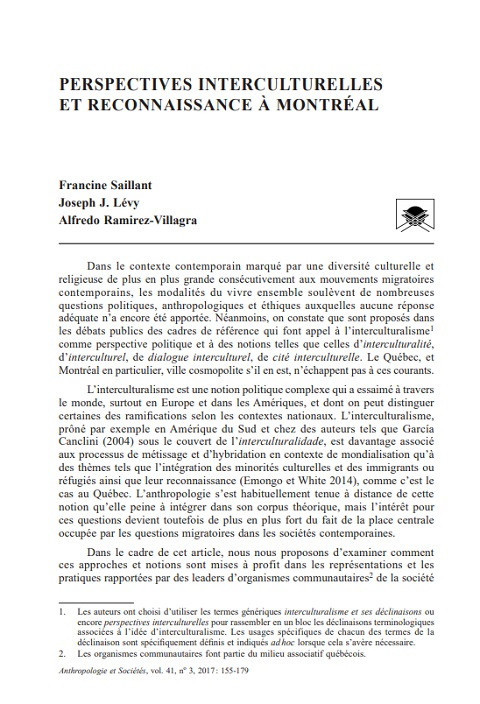
GCED Basic Search Form
Quick Search
Usted está aquí
Resources

Within the debates about the way to deal with cultural diversity, new perspectives emerge which are actually discussed by the political and sociocultural instances, such as the notions of interculturalism, intercultural, interculturality, recognition, and their links to human rights. These topics are part of the discussion in Quebec, whether on the political scene, on the urban management level and in the social sciences. This article presents the European and Quebec perspectives on these issues and analyses the discourses of community leaders in Montreal who are involved and interviewed within the InterReconnaissances project. Data show that theses intercultural perspectives are not formally defined nor validated, although they often are associated with diverse practices and trainings that are designated to enhance the awareness of the actors involved in the intercultural encounter. The notions of right and recognition play a part on three levels : the struggle for the recognition of the migrant groups and of their cultures, and the recognition of the work done by community organizations. The awareness of the social diversity within these groups of migrants, who may be strongly stigmatized, bring new intercultural problematics, corroborating the importance of these notions on the field of communitarian action in Montreal.
